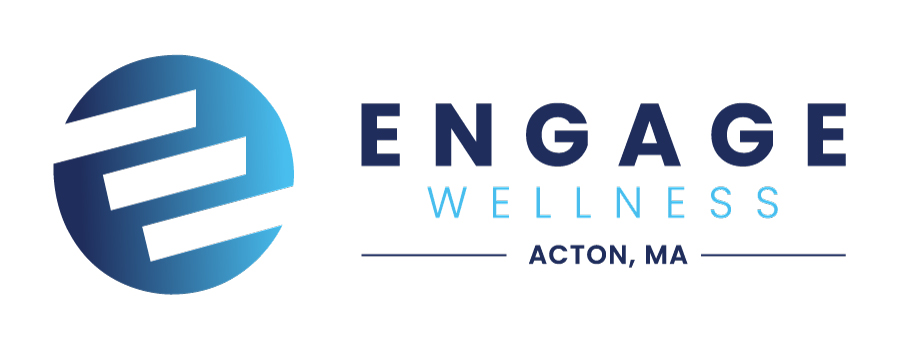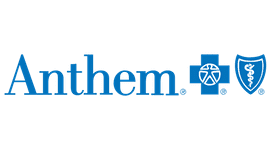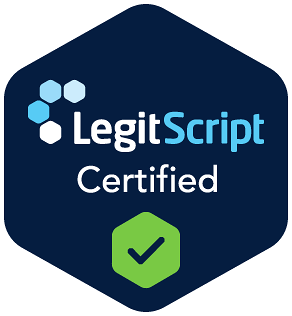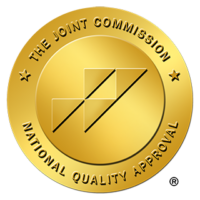Leading Innovation To Aid
Your Recovery
Modern addiction treatment has evolved considerably. At Engage Wellness, our medication-assisted treatment (MAT) program combines proven medications with therapy to support lasting recovery. Our comprehensive care addresses the underlying causes of harmful patterns while also providing comfort by managing withdrawal symptoms and reducing cravings.
What is Medication-Assisted Treatment?
Medication-assisted treatment combines FDA-approved medications with other interventions to treat substance use disorders.[1] The medications help reduce withdrawal symptoms and cravings while therapy addresses the underlying causes of harmful patterns and addiction, creating a comprehensive path to recovery.
At Engage Wellness, our MAT program integrates medical supervision with evidence-based counseling. Our psychiatric nurse practitioner evaluates each person daily, adjusting medications as needed while maintaining clear communication with the clinical team. This coordinated care ensures stability during early recovery.
Our approach emphasizes education and empowerment. We teach you how medications work with your brain chemistry to support healing and help you develop practical coping skills. You’ll gain tools to manage triggers, build healthy routines, and create a strong foundation for lasting recovery. Our staff brings lived experience to this process, offering genuine understanding and hope as you navigate your journey.
Core Components of a Medication-Assisted
Treatment Program
Medication-assisted treatment at Engage Wellness combines FDA-approved medications with comprehensive therapy to address both the physical and psychological aspects of addiction.[2] Our integrated approach helps reduce cravings and withdrawal symptoms while providing the support needed for lasting recovery.
The Benefits of Medication-Assisted Treatment for Alcohol and Other Substances
Medication-assisted treatment offers proven advantages that support long-term recovery success. FDA-approved medications help reduce withdrawal symptoms and cravings while blocking the effects of substances, providing immediate relief during the challenging early stages of treatment.[3]
The combination of medication and therapy creates a stable foundation for healing while equipping patients with the skills for relapse prevention. Participants learn to understand the root causes of addiction and overcome future challenges. Therapeutic components promote self-awareness and accountability, giving each person practical tools to maintain sobriety.
Research demonstrates that MAT significantly reduces overdose risk compared to drug-free programs, particularly for those with opioid use disorders.[4] This comprehensive medical support, paired with compassionate care, helps build the skills and confidence needed to reclaim life from addiction, providing hope and practical solutions for lasting recovery.
What We Treat
Engage Wellness provides comprehensive care for substance use disorders and co-occurring mental health conditions. Our evidence-based treatment programs address the complex ways these conditions interact, creating personalized recovery plans that treat the whole person.
Many people who struggle with substance use also experience mental health challenges. Research shows treating both conditions simultaneously leads to better outcomes and stronger recovery.[5] Engage’s integrated approach means you receive expert care for all aspects of your health from one coordinated team.
Our experienced medical providers and therapists work together to understand your unique needs. We take time to evaluate both substance use patterns and mental health symptoms, developing a treatment strategy that helps you heal and build skills for lasting wellness.
Find The Help You Need To Begin A New Future Today
Our experienced clinical team understands that each person’s path to recovery looks different. We take time to evaluate your specific needs, considering both substance use and mental health challenges, to develop a treatment plan that works for you. The combined expertise of our medical providers, therapists, and recovery specialists ensures comprehensive support throughout your healing journey.
Frequently Asked Questions About Medication-Assisted Treatment
How does medication-assisted treatment work for different substances?
Medication-assisted treatment varies based on the substance used. MAT for opioid addiction typically involves medications like buprenorphine or methadone, while MAT for alcohol use disorder may include medications that reduce cravings. Each approach combines FDA-approved medications with behavioral therapy and counseling.
What should I expect when starting MAT?
When beginning medically assisted treatment, you’ll receive a thorough evaluation from healthcare professionals who will create your personalized plan. Our substance use treatment services combine daily medication management with therapy sessions. Treatment length varies by person, but most programs run 60 to 90 days with ongoing support afterward.
Is MAT right for everyone struggling with addiction?
Medication-assisted treatment for alcohol and other substances proves highly effective for many people, but treatment plans must be individualized. Our medical team evaluates factors like substance use history, overall health, and co-occurring conditions to determine if MAT suits your needs. We offer various evidence-based alternatives if MAT isn’t the best fit.
What medications are used in MAT programs?
FDA-approved medications vary based on the type of substance abuse. For opioid use disorder and opioid dependence, options include buprenorphine (Suboxone), methadone, and extended-release naltrexone (Vivitrol). These medications work with your brain’s receptors to reduce cravings and withdrawal symptoms. Our clinicians carefully monitor your treatment plan, adjusting medications as needed to support your path to long-term recovery.









